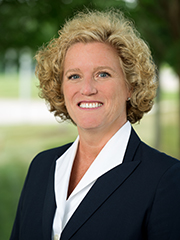Consolidating Answering Services After Mergers Contains Costs, Increases Physician Satisfaction
Hospital and health system mergers remain top of mind for healthcare finance executives and revenue cycle teams. Merger volume was up more than 14 percent year-over-year in 2018, with the industry realizing over 1,100 mergers and acquisitions overall, according to a PricewaterhouseCooper report. Sizeable organizations are pursuing even larger partnerships while the hospital acquisition of physician practices trend continues nationwide.

Piedmont Healthcare, a Georgia-based health system, is an active participant in the healthcare merger trend. The organization now includes 11 acute care hospitals and over 100 primary care, heart, and other specialty services, and serves nearly two million patients across Georgia.
Consolidating physician practices’ after-hours answering services is one step in the health system’s overall growth plan.
Historically, each practice vets, selects, and manages its own communications system including answering services, paging technology, and digital messaging platforms. By centralizing and standardizing answering services for its owned practices, Piedmont realized three important benefits, including the following:
- Improved clinical efficiency
- Boosted physician satisfaction
- Stabilized costs
Keys to Success
Health system leadership initiated the consolidation of answering services across Piedmont’s 179 physician practices and over 100 practice locations to obtain better quality and improved service for all its physicians, at a lower cost. Below are four keys to a successful consolidation of physician answering services.
Focus on expediting care for maximum return. Clinical communications become most urgent after normal business hours—practices are closed yet patient care remains in high demand. Effective patient-to-physician and physician-to-physician messaging during these times supports more effective care management.
With the goal of ensuring proper messages were sent and received by the right providers for any given clinical situation, Piedmont began a phased deployment of after-hours answering services technology for all employed practice locations in early 2018.
Maximize clinical efficiency and physician satisfaction. Mergers and acquisitions are a particularly sensitive time for everyone involved—especially physicians. Low physician satisfaction scores dominate most healthcare IT headlines during these transitions.
Inconsistent communication processes across Piedmont’s employed and newly acquired practices caused patient frustration and physician concerns. Consolidation of the after-hours answering services improved clinical efficiency for Piedmont’s employed physician practices through the ability to do the following:
- Avoid missed messages
- Delay routine message delivery until the next morning
- Connect with patients’ care teams in other settings
- Ensure consistent patient experiences
- Support all devices, and receive voice and text messages in one application
- Secure protected health information (PHI) in all communications
- Mask personal phone numbers by displaying the practices’ office numbers
For the health system, the smartest way to establish consistency was to standardize on an after-hours cloud-based communication platform. Existing workflow rules, multiple call schedules, roles, patient assignments, and physician preferences were taken into account.
Reduce spend using purchased services consolidation approach. Decentralized purchasing of third-party services can represent up to 25 percent of an organization’s annual spend. At Piedmont, there were more than 12 different vendors providing after-hours or 24/7 answering services to physicians.
To lower overall costs for clinical communications, Piedmont secured a lower per-provider monthly fee through volume purchasing, and it eliminated variable expenses related to use-based surcharges. In addition, the scalability of the platform ensures Piedmont’s ability to grow and expand the centralized communications strategy.
Maintain efficiency and cost benefits with continued growth. The standardized after-hours answering service technology will continue to support Piedmont Healthcare’s growth and expansion. Newly employed physician staff are added to the platform at fixed rates, and staff across the integrated delivery network may use the same workflow processes to relay important information to these providers.
When faced with an upcoming merger or acquisition, finance and operations executives should consider opportunities to centralize communications.





